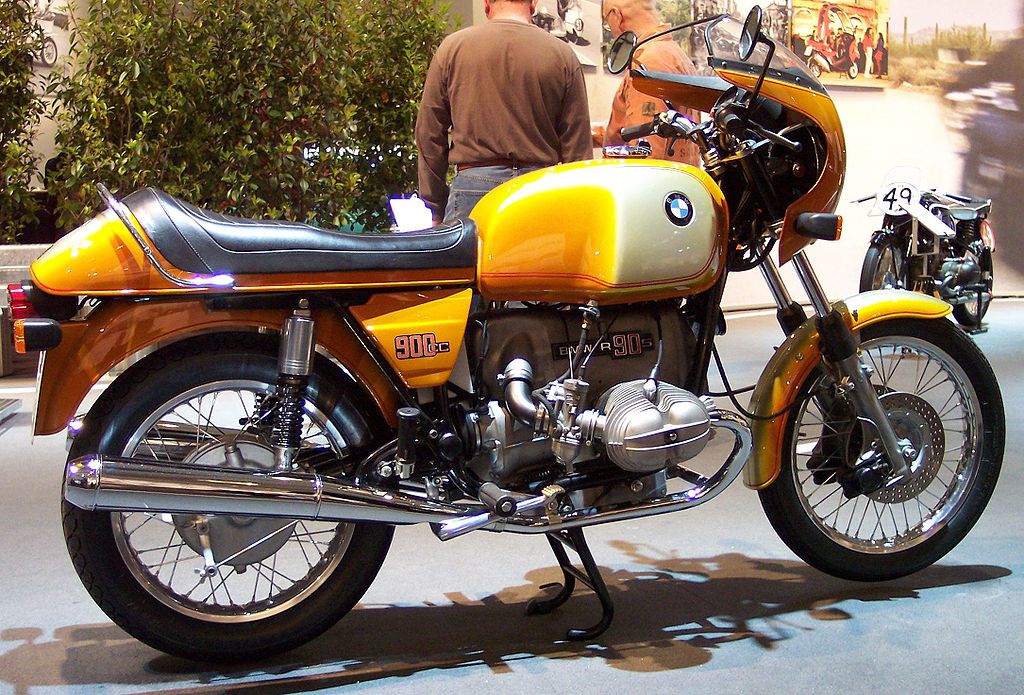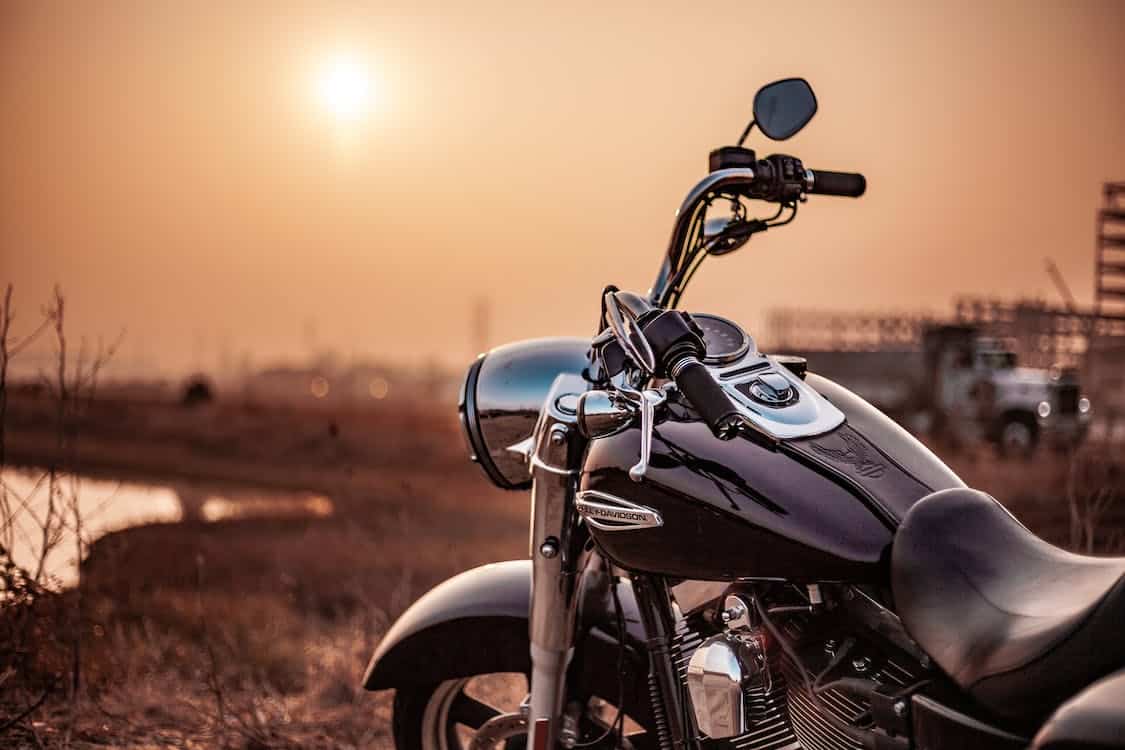Introduction
Choosing the right motorcycle is crucial for ensuring a comfortable and safe riding experience. Whether you’re a beginner or an experienced rider, it’s important to consider various factors before making a decision. In this blog post, we will discuss why choosing the right motorcycle is important and outline a checklist of essential things to consider when selecting a motorcycle.
Why choosing the right motorcycle is crucial for your riding experience
Choosing the right motorcycle can greatly impact your overall riding experience. Here’s why it’s crucial:
- Safety: The right motorcycle that matches your skill level and riding style will provide better control and stability, reducing the risk of accidents and injuries.
- Comfort: Riding a motorcycle that suits your body size and riding style ensures a comfortable experience, allowing you to ride for longer periods without fatigue or discomfort.
- Confidence: Riding a motorcycle that you feel comfortable and confident on will boost your riding skills and overall enjoyment of the experience.
Factors to consider when selecting a motorcycle
When selecting a motorcycle, there are several factors to consider. Here’s a checklist to help you make an informed decision:
- Experience level: Beginners should opt for less powerful, manageable, and easier-to-handle motorcycles. As a beginner, it’s important to start with a bike that you can control effectively and build your skills gradually.
- Riding style: Consider your riding style when choosing a motorcycle. Are you looking for a bike for city commuting, long-distance touring, or off-road adventures? Different motorcycles are designed for different purposes, so make sure to choose one that aligns with your riding style.
- Body size: Your body size and height play a significant role in finding a motorcycle that provides optimal comfort and control. Test ride various bikes to determine which ones suit your body size the best.
- Budget: Set a budget for purchasing a motorcycle and consider the associated costs such as insurance, maintenance, and fuel. Ensure that your chosen motorcycle fits within your budget without compromising on safety and quality.
- Research and test rides: Do thorough research on different motorcycle models, read reviews, and talk to experienced riders. Test ride multiple bikes to get a feel for their performance, handling, and overall comfort before making a final decision.
Remember, choosing the right motorcycle requires careful consideration of your experience level, riding style, body size, and budget. By taking the time to evaluate these factors, you can ensure a safe, comfortable, and enjoyable riding experience.
Novice Riders
Benefits of starting with a smaller, lightweight motorcycle
Starting your riding journey as a novice rider can be overwhelming, but choosing the right motorcycle can make a world of difference. Here are some benefits of starting with a smaller and lightweight motorcycle:
- Easy to handle: Smaller motorcycles are generally easier to maneuver, making them more suited for beginners. They are lighter, which means you will have better control and stability during your rides.
- Increased confidence: Riding a smaller motorcycle allows beginners to develop their skills at a comfortable pace. As you gain experience and confidence, you can gradually move on to more powerful bikes.
- Lower risk of accidents: Smaller motorcycles have less power, which means they have a lower top speed. This can be advantageous for beginners as it reduces the risk of accidents due to excessive speed.
- Fitting your body: Smaller motorcycles are usually designed with lower seat heights, allowing riders to comfortably rest their feet on the ground while seated. This provides a sense of security and stability, especially for those with shorter inseams.
Building skills and confidence with easy-to-handle bikes
As a novice rider, starting with an easy-to-handle bike can help you build your skills and confidence on the road. Here’s why it’s important:
- Control: Easy-to-handle bikes allow beginners to focus on learning fundamental skills such as braking, cornering, and balancing without being overwhelmed by excessive power.
- Gradual progression: By starting with a bike that matches your skill level, you can gradually improve your riding abilities before transitioning to more powerful motorcycles.
- Risk reduction: Easy-to-handle bikes are more forgiving and less likely to surprise you with sudden bursts of power. This reduces the risk of losing control and helps you become a more competent and safe rider.
- Enjoyment: Riding a bike that you feel comfortable on and can easily handle can greatly enhance your enjoyment of the sport. It allows you to focus on the thrill of riding rather than constantly worrying about controlling a bike that is beyond your skill level.
Choosing the right motorcycle as a novice rider is crucial for developing your skills, building confidence, and ensuring a safe and enjoyable riding experience. By starting with a smaller, lightweight, and easy-to-handle bike, you can lay a solid foundation for your future adventures on the road. Remember to always prioritize safety and choose a bike that aligns with your experience level and riding style.
Experienced Riders
Advantages of larger and more powerful motorcycles for riders with prior experience
Experienced riders, who have honed their skills and gained confidence on the road, often seek larger and more powerful motorcycles. Here are some advantages of choosing such bikes:
- Enhanced performance: Larger motorcycles are capable of higher speeds and can handle various terrains with ease. This allows experienced riders to enjoy a more thrilling and exhilarating riding experience.
- Increased stability: With their larger size and weight, powerful motorcycles offer enhanced stability on the road. This can be particularly beneficial during long-distance rides or when dealing with strong winds.
- Superior acceleration and overtaking: More powerful engines enable quicker acceleration and easier overtaking maneuvers, providing experienced riders with greater control and confidence in various traffic situations.
- Extra storage and customization options: Larger motorcycles often come with additional storage compartments, making them suitable for riders who require more carrying capacity. Moreover, these bikes offer more customization options, allowing riders to personalize their ride according to their preferences.
Choosing a bike that matches your skill level and comfort
Even as an experienced rider, it’s essential to choose a motorcycle that aligns with your skill level and comfort. Here are some key factors to consider:
- Handling and maneuverability: Opt for a bike that you can handle comfortably in various riding conditions. Consider factors such as weight distribution, center of gravity, and the ease of turning and cornering.
- Seating position and ergonomics: Ensure that the bike’s seating position and ergonomics are suitable for your body type and riding style. A comfortable seating position is crucial for long rides and reducing fatigue.
- Technology and features: Evaluate the bike’s technology and features, such as ABS brakes, traction control, and suspension systems. These advancements can enhance safety and overall riding experience.
- Maintenance and cost: Consider the maintenance requirements and cost of owning the bike. Evaluate factors such as fuel efficiency, servicing availability, and the availability of spare parts.
As an experienced rider, selecting a motorcycle that complements your skills and comfort level is crucial for a satisfying and safe riding experience. Take the time to test ride different bikes, consult fellow riders, and consider your own preferences before making a final decision. Remember to prioritize safety and always wear appropriate protective gear while enjoying your ride.
What Kind of Motorcycle Should I Buy?
Researching and evaluating different motorcycle options
Experienced riders, who have honed their skills and gained confidence on the road, often seek larger and more powerful motorcycles. These bikes offer a range of advantages that enhance the riding experience. Here are some factors to consider when researching and evaluating different motorcycle options:
- Performance: Larger motorcycles are capable of higher speeds and can handle various terrains with ease, providing a more thrilling and exhilarating riding experience.
- Stability: With their larger size and weight, powerful motorcycles offer increased stability on the road, which can be beneficial during long-distance rides or when dealing with strong winds.
- Acceleration and overtaking: More powerful engines enable quicker acceleration and easier overtaking maneuvers, giving experienced riders greater control and confidence in various traffic situations.
- Storage and customization options: Larger motorcycles often come with additional storage compartments, making them suitable for riders who require more carrying capacity. Moreover, these bikes offer more customization options, allowing riders to personalize their ride according to their preferences.
Considering factors such as riding style, comfort, and skill level
Even as an experienced rider, it’s essential to choose a motorcycle that matches your skill level and comfort. Here are some key factors to consider when making your decision:
- Handling and maneuverability: Opt for a bike that you can handle comfortably in various riding conditions. Consider factors such as weight distribution, center of gravity, and the ease of turning and cornering.
- Seating position and ergonomics: Ensure that the bike’s seating position and ergonomics are suitable for your body type and riding style. A comfortable seating position is crucial for long rides and reducing fatigue.
- Technology and features: Evaluate the bike’s technology and features, such as ABS brakes, traction control, and suspension systems. These advancements can enhance safety and overall riding experience.
- Maintenance and cost: Consider the maintenance requirements and cost of owning the bike. Evaluate factors such as fuel efficiency, servicing availability, and the availability of spare parts.
As an experienced rider, selecting a motorcycle that complements your skills and comfort level is crucial for a satisfying and safe riding experience. Take the time to test ride different bikes, consult fellow riders, and consider your own preferences before making a final decision. Remember to prioritize safety and always wear appropriate protective gear while enjoying your ride.

Research and Reviews
Importance of reading reviews and seeking advice from experienced riders or enthusiasts
When it comes to choosing the right motorcycle, doing thorough research and seeking advice from experienced riders or enthusiasts can make a significant difference. Here are a few reasons why it’s important to read reviews and get insights from those with more experience:
- Real-world experiences: Reviews provide valuable insight into how different motorcycles perform in real-world situations. By reading reviews, you can learn about the pros and cons of specific models, their reliability, and any issues that riders have encountered.
- Expert recommendations: Experienced riders or enthusiasts have a wealth of knowledge and can offer valuable recommendations based on their own experiences. They can provide insights on different brands and models, helping you understand which ones are suitable for your preferences and riding style.
- Consideration of various factors: Reading reviews and seeking advice allows you to consider various factors such as performance, comfort, maintenance, and cost. This comprehensive understanding helps you make an informed decision that aligns with your needs and priorities.
Insights into specific models and brands
Once you have gathered information from reviews and advice, it’s time to delve deeper into specific motorcycle models and brands. Here are a few key points to consider when evaluating different options:
| Brand | Key Features |
|---|---|
| Brand 1 | Lorem ipsum dolor sit amet, consectetur adipiscing elit. |
| Brand 2 | Nullam commodo dapibus massa, eu lobortis ex eleifend ut. |
| Brand 3 | Praesent auctor tortor nec vestibulum commodo. |
By comparing different brands and their key features, you can narrow down your options and find the right motorcycle that suits your requirements. Keep in mind that personal preference also plays a role, so it’s essential to consider your own riding style, comfort, and skill level alongside the insights you gather from reviews and recommendations.
Licensing and Legal Requirements
Understanding the necessary motorcycle license and legal obligations for riding
To legally ride a motorcycle on public roads, it is crucial to obtain the required motorcycle license. This license ensures that riders have the necessary skills and knowledge to operate a motorcycle safely. After obtaining your license, there are certain legal obligations you must fulfill, including registering and insuring your motorcycle, and complying with safety and emissions standards.
Ensuring compliance with local regulations
It is important to be aware that there may be restrictions on the type of motorcycle you can customize, depending on the laws and regulations set by the governing body in your area. These restrictions are in place to ensure the safety of both the rider and other road users.
When it comes to customizing your motorcycle, it is essential to research and understand the local regulations to avoid any legal issues. By complying with these regulations, you can ensure that your customized motorcycle meets safety and emissions standards.
To gather insights and make informed decisions about your motorcycle customization, it is advisable to read reviews and seek advice from experienced riders or enthusiasts. Here are some reasons why:
- Real-world experiences: Reviews provide valuable insights into how different motorcycles perform in real-world situations. By reading reviews, you can learn about the pros and cons of specific models, their reliability, and any issues that riders have encountered.
- Expert recommendations: Experienced riders or enthusiasts have a wealth of knowledge about different brands and models. They can offer valuable recommendations based on their own experiences, helping you understand which motorcycles are suitable for your preferences and riding style.
- Consideration of various factors: Reading reviews and seeking advice allows you to consider various factors such as performance, comfort, maintenance, and cost. This comprehensive understanding helps you make an informed decision that aligns with your needs and priorities.
Once you have gathered information from reviews and advice, you can delve deeper into specific motorcycle models and brands. By comparing different brands and their key features, you can narrow down your options and find the right motorcycle that suits your requirements.
Remember to consider your own personal preferences, riding style, comfort, and skill level alongside the insights you gather from reviews and recommendations.
Comparing Options
Evaluating different motorcycles based on individual preferences and requirements
When choosing a motorcycle, it’s essential to consider your individual preferences and requirements. Factors such as your riding style, experience level, and intended use for the motorcycle will play a significant role in determining which type of bike is best suited for you. It’s important to ask yourself questions like:
- Are you looking for a motorcycle for daily commuting or long-distance touring?
- Do you prefer a sporty, aggressive riding position or a more relaxed, upright seating arrangement?
- Are you interested in off-road adventures or primarily riding on pavement?
- How much power and speed do you want from your motorcycle?
By carefully evaluating these factors and matching them with the features and capabilities of different motorcycle types, you can narrow down the options that best align with your needs.
Weighing the pros and cons of various models
To further aid in your decision-making process, it’s crucial to examine the pros and cons of different motorcycle models. Each type of motorcycle has its own strengths and weaknesses, which can influence your overall riding experience. Here are a few examples:
- Sport bikes: Pros include high-performance capabilities and agility, while cons may include a less comfortable riding position for long distances.
- Cruiser bikes: Pros include a relaxed riding position and a smooth, comfortable ride, while cons may include less maneuverability in tight spaces.
- Adventure bikes: Pros include versatility for both on and off-road riding and ample storage space, while cons may include taller seat heights for shorter riders.
- Touring bikes: Pros include comfortable seating for long-distance rides and ample storage, while cons may include larger size and increased weight.
By considering the pros and cons of different motorcycle models, you can make an informed decision that aligns with your specific preferences and priorities.
Remember, choosing the right motorcycle is a personal decision, and what works for one person may not work for another. It’s crucial to thoroughly research and test ride different options to ensure you find the motorcycle that best suits your overall needs and provides an enjoyable riding experience.
Making an Informed Decision
Using gathered information to make a well-informed choice
When it comes to choosing the best motorcycle for your needs, it is crucial to have a clear understanding of your preferences and requirements. By considering factors such as your riding style, experience level, and intended use for the bike, you can gather the necessary information to make a well-informed decision.
Take the time to research different motorcycle models and test ride them to gain valuable insights into their performance and feel on the road. By experiencing firsthand how each bike handles, its power, and comfort, you can determine which one best suits your needs.
Considering factors such as budget, maintenance, and future needs
In addition to evaluating your riding preferences, it is important to take other factors into account when choosing a motorcycle. Budget plays a significant role in determining the options available to you. Consider not only the upfront cost of purchasing a motorcycle but also ongoing expenses such as insurance, maintenance, and fuel efficiency.
Furthermore, think about your future needs. Will your riding requirements change over time? If you are a beginner rider, starting with a bike that offers beginner-friendly features and the potential for growth as your skills develop might be a good option. For experienced riders, priorities may shift towards more advanced features and higher performance.
Another aspect worth considering is the resale value of different motorcycle models. While this might not be a primary concern when making a purchase, it can affect your overall ownership experience if you decide to sell or upgrade your bike in the future.
By carefully evaluating all of these factors, you can make a well-informed decision when choosing a motorcycle. Prioritizing your safety and enjoyment while riding is essential, and seeking advice from experienced riders or motorcycle experts can also be helpful. Ultimately, finding the right motorcycle is a personal decision. By taking the time to gather information and consider your options, you can ensure that you select the bike that best matches your needs and enhances your overall riding experience.
Conclusion
The ideal motorcycle is one that aligns with your riding style, comfort, and skill level
Choosing the perfect motorcycle requires careful consideration of various factors such as riding experience, style, and preferences, budget, engine size and weight, ergonomics and comfort, safety features, and resale value. It is important to take the time to research and test ride different models to find the one that fits your needs.
Final thoughts and recommendations
Once you have narrowed down your choices, make sure to take each potential bike for a test ride to get a feel for its handling, power, and comfort. Prioritize safety at all times when riding your motorcycle and consider the long-term maintenance and future needs. Remember, the perfect motorcycle will not only meet your practical requirements but also provide that unexplainable sense of joy every time you hit the open road. Ride safe and enjoy the thrilling experience of motorcycling.
Frequently Asked Questions: Choosing the Right Motorcycle for Your Riding Style and Preferences
Q: How do I choose the right motorcycle for my riding style and preferences?
A: To choose the right motorcycle, consider factors such as your riding experience level, intended use, body type, budget, and personal preferences.
Q: What type of motorcycle should I choose as a beginner rider?
A: As a beginner, it is generally recommended to start with a smaller, more manageable bike such as a cruiser or standard motorcycle with a moderate engine size.
Q: I’m a seasoned rider looking for a motorcycle to commute to work and for weekend trips. Any recommendations?
A: For commuting and weekend trips, you might consider a sport-touring motorcycle that offers a comfortable and upright riding position, good wind protection, and ample storage capacity.
Q: I prefer off-road adventures and adventures in remote areas. What motorcycle would suit my needs?
A: Adventure motorcycles with off-road capabilities, rugged design, and long-distance touring capabilities are ideal for such purposes. Look for bikes equipped with dual-sport tires and robust suspension systems.
Q: I have a sporty riding style and enjoy high speeds. What type of motorcycle should I choose?
A: Sports bikes or superbikes are designed for high speeds and precise handling. They usually have aggressive riding positions, powerful engines, and aerodynamic designs.
Q: Can you recommend a motorcycle for city riding and quick maneuvering in traffic?
A: For city riding and maneuvering through traffic, consider getting a lightweight and nimble motorcycle with good low-end torque. Naked bikes or scooters might be suitable choices.
Q: Are there motorcycles specifically designed for long-distance touring?
A: Yes, there are touring motorcycles built for long-distance comfort, loaded with features like adjustable windscreens, comfortable seating, large fuel tanks, and plenty of storage options to accommodate your needs.
Q: What should I consider when choosing a motorcycle based on my body type?
A: Ensure that the motorcycle’s seat height and ergonomics suit your body proportions and provide a comfortable riding position. Visit a dealership to try different models and get a feel for what works best for you.
Q: How can I determine the right engine size for my motorcycle?
A: The engine size should be chosen based on your experience, riding conditions, and intended use. Smaller engine sizes (250-500cc) are suitable for beginners and urban commuters, while larger engine sizes (500cc and above) provide more power for experienced riders and highway use.
Q: Is it important to consider my budget when choosing a motorcycle?
A: Absolutely! Motorcycles come in a wide range of prices, so it’s crucial to determine your budget in advance. Consider the upfront cost, as well as long-term expenses like maintenance, insurance, and fuel consumption.
Remember, buying a motorcycle is a personal decision, and it’s important to choose one that reflects your riding style, preferences, and comfort level. Take time to research and test ride different models to find the perfect motorcycle that suits you.

David Williams is an author with a passion for motorcycles and all things related to the world of two-wheeled vehicles. His expertise is evident on his website, The Moto Expert, where he shares his knowledge and insights with fellow enthusiasts. Follow him on social media to stay up-to-date on the latest motorcycle news, reviews, and trends. Whether you’re a seasoned rider or just starting out, David’s content is sure to inform and entertain. Join his community and become a part of the conversation today.




